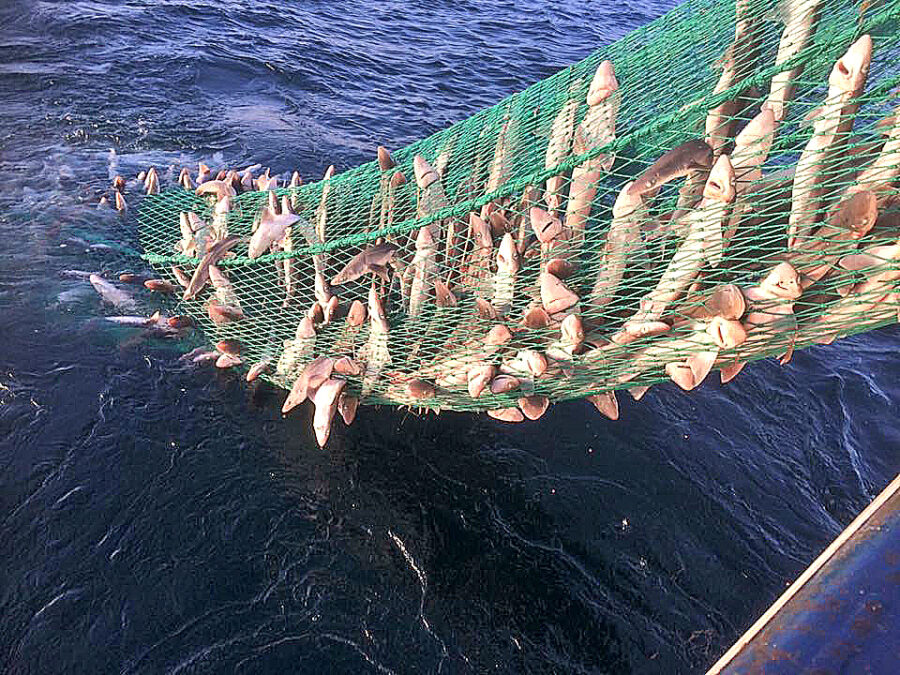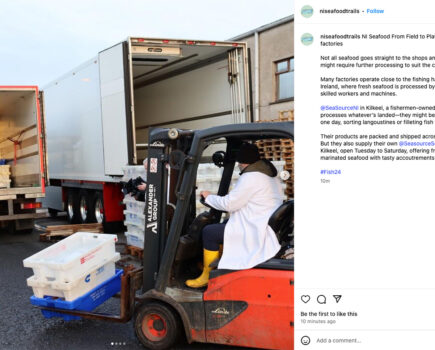Cornish fishermen have reported an increasing amount of spurdog encounters over the past few months.
Recently, a Newlyn-based trawler, fishing for John Dory around the Isles of Scilly, accidently caught over 10 tonnes of spurdog.
This resulted in damage to its fishing gear, as well as a great deal of lost fishing time.
To compound the Cornish fishermen’s frustration, under current EU fishing rules not one of the spurdogs can be landed for human consumption, or sold, due to stock status fears that led to a zero Total Allowable Catch (TAC) being introduced in 2010.
Cornish fishermen have been working with CEFAS and DEFRA, in an effort to assist scientists, managers and policy makers, to show that the current management measures for spurdog are not in tune with what they encounter on a daily basis at sea.
The Cornish Fish Producers Organisation (CFPO) states there are accidental by-catches of spurdog in many mixed-fisheries, not just in Cornwall but around the UK, which they claim leads to a level of fishing mortality of spurdog.
Under the current EU management regime these fish must be discarded, whether they are dead or alive.
“There is no real benefit for the stock, fishermen or wider society under the current regime of discarding dead spurdog,” stated the CFPO.
“This is a waste of a perfectly good food resource and is clearly not in line with the principles of the recently reformed Common Fisheries Policy (CFP) and, in particular, the much-heralded Landings Obligation (discard ban).”
The CFPO, alongside CEFAS and DEFRA, is developing a pilot project using a real-time reporting system, similar to that used for the cod recovery programme in the North Sea.
The project will be carried out in the Western Approaches/Celtic Sea (ICES Divisions VIIe-j). Fishermen are asked to report any spurdog catches within pre-defined reporting grids, and that information can then be fed back to other skippers.
It is envisaged that the project will assist skippers by giving them up-to-date information on spurdog movements and allow skippers to make informed decisions about potential interactions.
This will hopefully reduce the incidence of significant spurdog catch events and contribute to the perceived stock improvement being witnessed by fishermen. It will not result in a complete avoidance of spurdog catches.
The CFPO is therefore calling for an ability to land a marketable dead spurdog bycatch, with a nominal landing allowance that does not incentivise targeting of the stock.
The CFPO claims this solution will allow for the ongoing recovery of spurdog in the north east Atlantic by reducing fishing-induced mortality, further improving scientific understanding of spurdog and its interactions with fishermen, while allowing incidental dead spurdog by-catch to be landed and marketed.
The CFPO says it has been given international support for this initiative at the most recent North Western Waters Advisory Council (NWW AC) in July, with backing from all present at the meeting and a willingness from other member states to be actively involved.
For the project to work effectively, there will need to be a high level of industry-science collaboration and cooperation.
Paul Trebilcock Chief Executive of the CFPO said: “Progress has been frustratingly slow on this issue. But credit must go to the skippers and crews who have remained engaged and continue to work with scientists and policy makers.
“There is no doubt in my mind that spurdog populations are increasing throughout the Western Approaches and beyond. This perception is being echoed by fishermen across Europe.
“I genuinely believe that DEFRA and CEFAS understand that the current EU management regime for spurdog isn’t compatible with the Landing Obligation and are committed to changing it.
“George Eustice and his DEFRA team have clearly stated that the UK position will be to seek a landing allowance to stop the unnecessary waste of dead by-caught spurdog as part of the pilot project we are involved in.”








